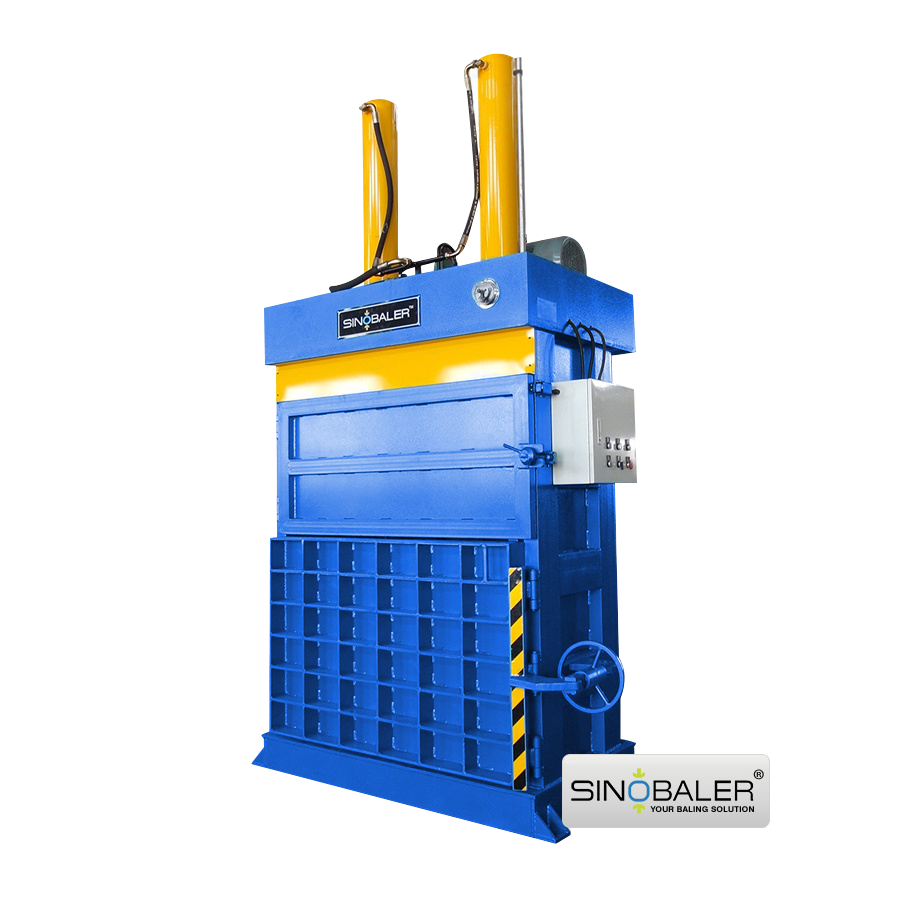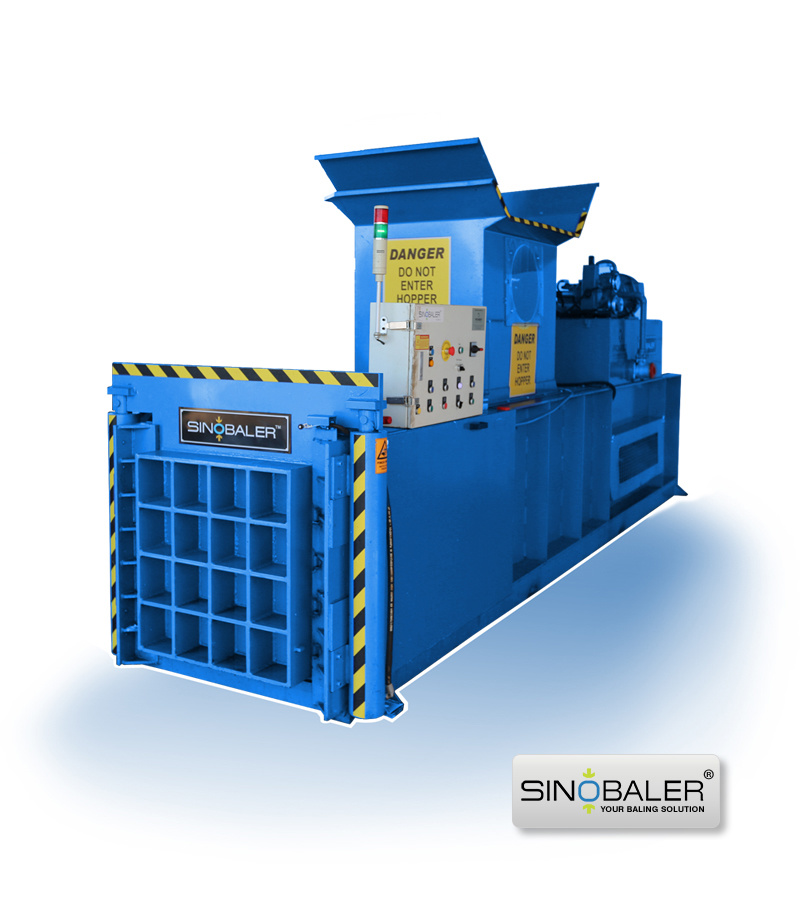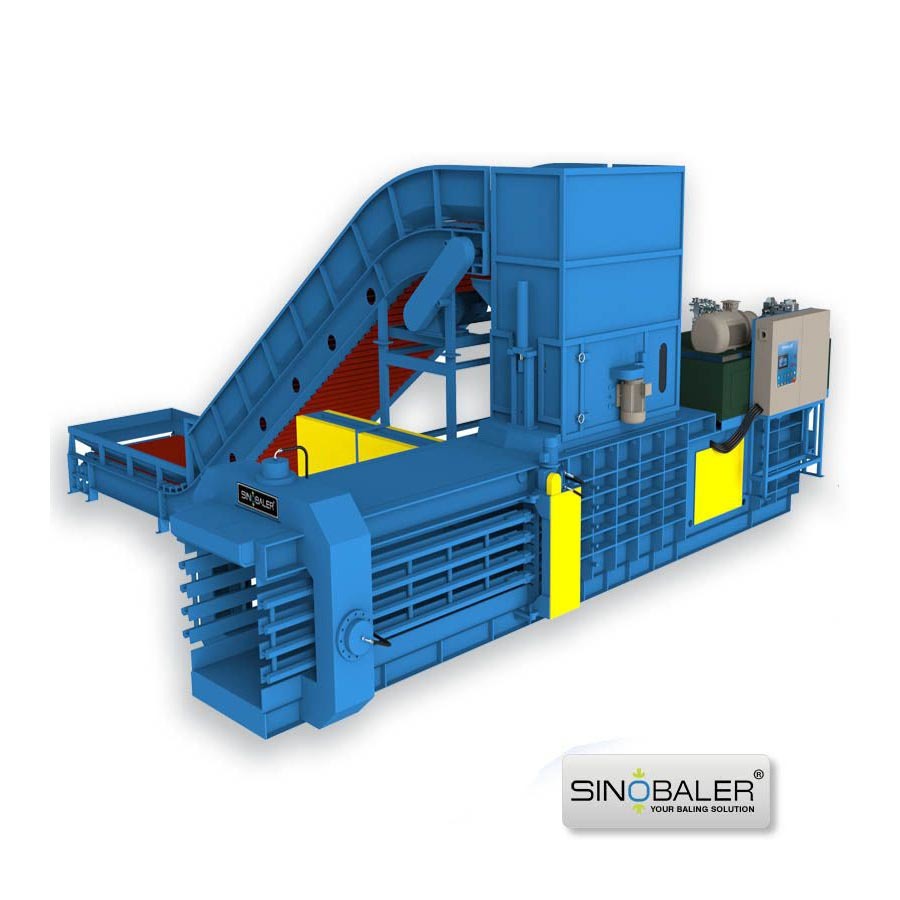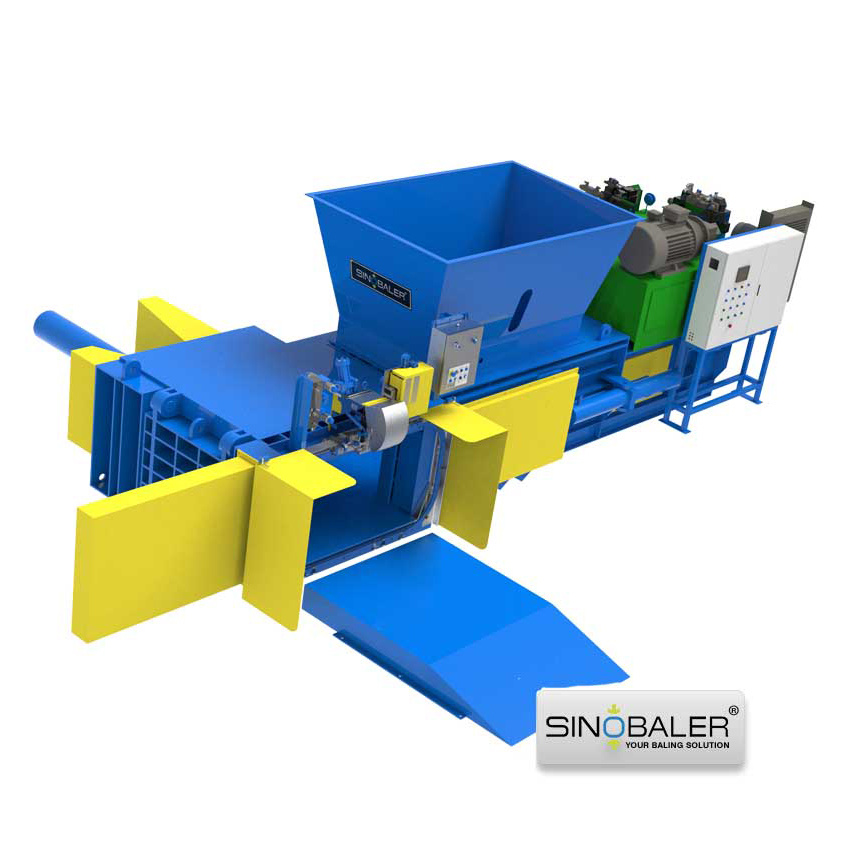Plastic Film
Plastic waste is a significant environmental challenge, with plastic films such as packaging wraps, grocery bags, and agricultural covers contributing heavily to the problem. Efficiently managing and recycling these materials is crucial for reducing their environmental impact. Plastic film baler machines are specialized machines designed to handle and process these materials.
What is a Plastic Film Baler?
A plastic film baler is a machine specifically designed to compress plastic films into dense, manageable bales. Plastic films, known for their lightweight and flexible properties, can be difficult to handle and recycle in their loose form. A plastic film baler addresses this issue by using hydraulic or mechanical pressure to compact the films, making them easier to transport and process.
How Plastic Film Balers Work
The process of using a plastic film baler involves several key steps:
Feeding: Plastic films are introduced into the baler, either manually or via an automated feeding system. Proper sorting is important to remove contaminants and non-recyclable materials before baling.
Compression: Inside the baler, the plastic films are compressed using hydraulic or mechanical force. This step significantly reduces the volume of the plastic, consolidating it into a more manageable form.
Baling: After compression, the plastic films are formed into bales. These bales are secured with wires or straps and ejected from the baler. The compacted bales are now ready for storage or transportation.
Storage and Transport: The compacted bales are easier to store and transport to recycling facilities where they can be further processed or repurposed.
Advantages of Plastic Film Balers
Improved Efficiency: By compressing plastic films into bales, balers reduce the volume of waste. This efficiency lowers storage and transportation costs and simplifies handling.
Enhanced Recycling: Compact bales are less likely to tangle or jam in machinery compared to loose plastic films. This improvement in processing efficiency helps increase recycling rates and reduces downtime at recycling facilities.
Cost Savings: Reducing the volume of waste lowers transportation and storage costs. Plastic film balers help optimize these processes, making recycling more cost-effective.
Environmental Impact: Effective baling and recycling of plastic films contribute to reducing the overall environmental footprint of plastic waste. By recycling plastic films, we can reduce the need for virgin plastic production and minimize environmental pollution.
Plastic film balers play a crucial role in the recycling of plastic films by converting them from loose, bulky waste into compact, manageable bales. This process not only enhances the efficiency of recycling operations but also supports environmental sustainability by improving recycling rates and reducing the impact of plastic waste. As technology advances, plastic film balers will continue to be a vital tool in the quest for more effective and sustainable plastic waste management. Through ongoing innovation and adoption of best practices, we can work towards a future where plastic film recycling is more efficient and environmentally beneficial.
Quick links:
VIDEOS
PICTURES
APPLICABLE MACHINE
The Sinobaler Heavy Duty Dual Ram Baler delivers 80–200 tons of press force via its dual-ram system, ideal for compacting tough, fibrous, or rebounding materials, as well as soft ones requiring high bale density for optimized loading. It's perfect for natural and synthetic fibers, metal panels, tubes, profiles, and hard plastics like electronics shells and pipes. This baler reduces storage space, cuts transport costs, and boosts efficiency—making it a smart investment for modern recycling and waste handling.
Sinobaler’s Manual Tie Horizontal Baler, also called a semi-automatic horizontal baler, handles solid and hollow waste like cardboard, PET bottles, textiles, and more. Ideal for facilities processing under 4 tons/hour with low labor costs, it offers automatic feeding, compressing, door control, and bale ejection—only the tying is manual. Press force ranges from 40 to 120 tons, with bale weights from 200kg to 850kg. Custom chamber sizes, power packs (up to 45kW), and conveyor options are available to boost productivity up to 5 bales/hour.
Our Closed-door fully automatic horizontal baler is designed for efficient and high-performance baling of a wide range of waste materials, including cardboard, paper, film, bags, bottles, etc., perfectly suited for both professional recycling companies and in-house waste management. Attributed to its door-equipped chamber, the baler produces exceptionally dense and uniform bales, optimizing storage and transportation. The fully automatic tying system ensures high efficiency and significantly reduces labor costs, making it an ideal solution for operations seeking to maximize productivity while minimizing manual handling.
Open-end Manual-tie Horizontal Baler
Sinobaler SHB1-O series open-end manual-tie horizontal baler features an open-end design for continuous bale output, improving productivity by 50% over close-end balers. Strapping setup is needed only once, saving labor like a fully automatic baler. It supports various strapping materials—steel wire, PET strap, rope, etc.—making it ideal for high-volume solid waste or biomass baling. Not suited for hollow plastics due to lower density. A cost-effective choice for mid-scale recyclers or facilities needing efficient, labor-saving baling with limited investment.
Open-end Manual-tie Horizontal Baler With Wire Threader
This open-end manual-tie horizontal baler with wire threader offers nearly all functions of a fully automatic baler—except automatic tying. The built-in threading mechanism pushes wire or belt into strapping slots automatically, unlike standard manual-tie balers. While its productivity is about 20% less than a full-auto baler of the same size, it allows flexible strapping materials like steel wire, PET belt, or rope. Ideal for medium-scale recyclers or producers of solid waste, animal bedding, or feed who need efficient, cost-effective baling without sharp metal in bales. Best suited for soft or solid waste, not hollow plastic containers.
Fully Automatic Horizontal Baler
Sinobaler’s fully automatic horizontal baler (20–120 tons pressure) processes up to 15 tons/hour, ideal for high-volume recyclers handling cardboard/OCC, paper, plastic film, textile waste, and more. As our flagship open-end auto-tie baler, it features Mitsubishi PLC control, remote support, and simple operation. Bale weight/length is programmable via a touch screen for optimized container loading. The SHBA2-1200 model produces dense 1200kg rectangular bales, easy for transport/storage. CE-compliant with safety interlocking, SHBA2 is the perfect solution for large-scale soft waste recycling.
L-type Two Ram Automatic Horizontal Baler
The L-type two ram automatic horizontal baler is ideal for baling a wide range of recyclable waste. Compared to single ram balers, it offers greater versatility, supports both wire and plastic strapping, and produces high-density bales thanks to its separate strapping unit. Its flexible design can include features like a pre-compression lid to prevent cutting sensitive materials like textiles. Perfect for high-volume recycling centers, fodder exporters needing plastic straps, and municipal waste handlers seeking to avoid jams common in single ram balers.
Cardboard Baler (eg. Mill Size Baler)
The standard mill size baler is one of Sinobaler’s most popular vertical baling machines, ideal for handling cardboard and carton waste. Also known as a cardboard or carton baler, it suits recycling centers, cardboard manufacturers, supermarkets, stores, and print shops generating large cardboard waste. It compresses waste into dense bales up to 520kg with a size of 1520×760×1220mm, reducing volume by about 12:1. Easy to operate with manual door opening and auto bale ejection, it saves storage space, transport, and labor costs while meeting safety standards.
Mini Baler / Marine Baler / Multi Purpose Baling Machine
Sinobaler’s Multi-purpose Baler (Mini Baler) is a compact, versatile vertical baler ideal for malls, hotels, offices, hospitals, houses, and vessels, making it popular as a Marine Baler due to its small footprint and height. It meets marine industry needs with standard, waterproof, and explosion-proof versions, helping over 300 vessels reduce waste storage and disposal costs by up to 60%. This baler handles soft waste like cardboard, paper, cans, bottles, and film, with 10–20 tons press force, up to 800×600×800mm bale size, 20–100kg bale weight, and 12:1 compaction ratio for easy storage and transport.
PRIVACY POLICY
We collect information from you when you fill out an inquiry or contact form. When submitting the form on our site, you may be asked to enter your name and contact details such as: e-mail address, mailing address and/or phone number, etc. Alternatively, you can choose not to complete our forms and visit our site anonymously. Any of the information we collect from you may be used to help us to better respond to your individual needs, and/or enable us to more effectively respond to your customer service requests and support needs. The email address you provided may also be used to send you information and updates pertaining to your inquiry and/or order, in addition to receiving occasional company news, updates, related product or service information, etc. SINOBALER does not sell, trade, or otherwise transfer to outside parties your personally identifiable information. This does not include trusted third parties who assist us in operating our website, conducting our business, or servicing you, so long as those parties agree to keep this information confidential. We may also release your information when we believe release is appropriate to comply with the law, enforce our site policies, or protect ours or others rights, property, or safety.
By using our site, you consent to our online privacy policy. If we decide to change our privacy policy, we will post those changes on this page. If you have any questions or concerns regarding our privacy policy, please e-mail info@sinobaler.com or mail your question to us at 1206 Yinzhou Shanghui Nan Lou, 1299 Yinxian Avenue, Yinzhou District, Ningbo 315192, P.R. China.
EXTERNAL LINKS & DISCLAIMER
Our web site has links to many other organizations with their permission. Upon leaving the SINOBALER web site, you are subject to the privacy policy of the new site which are not under our control. SINOBALER is not responsible for the content of any linked site or any link contained in a linked site. These links are provided to you as a service for you to better understand the different business relationships that SINOBALER has established, and/or to point the reader to other possible relevant resources.










































